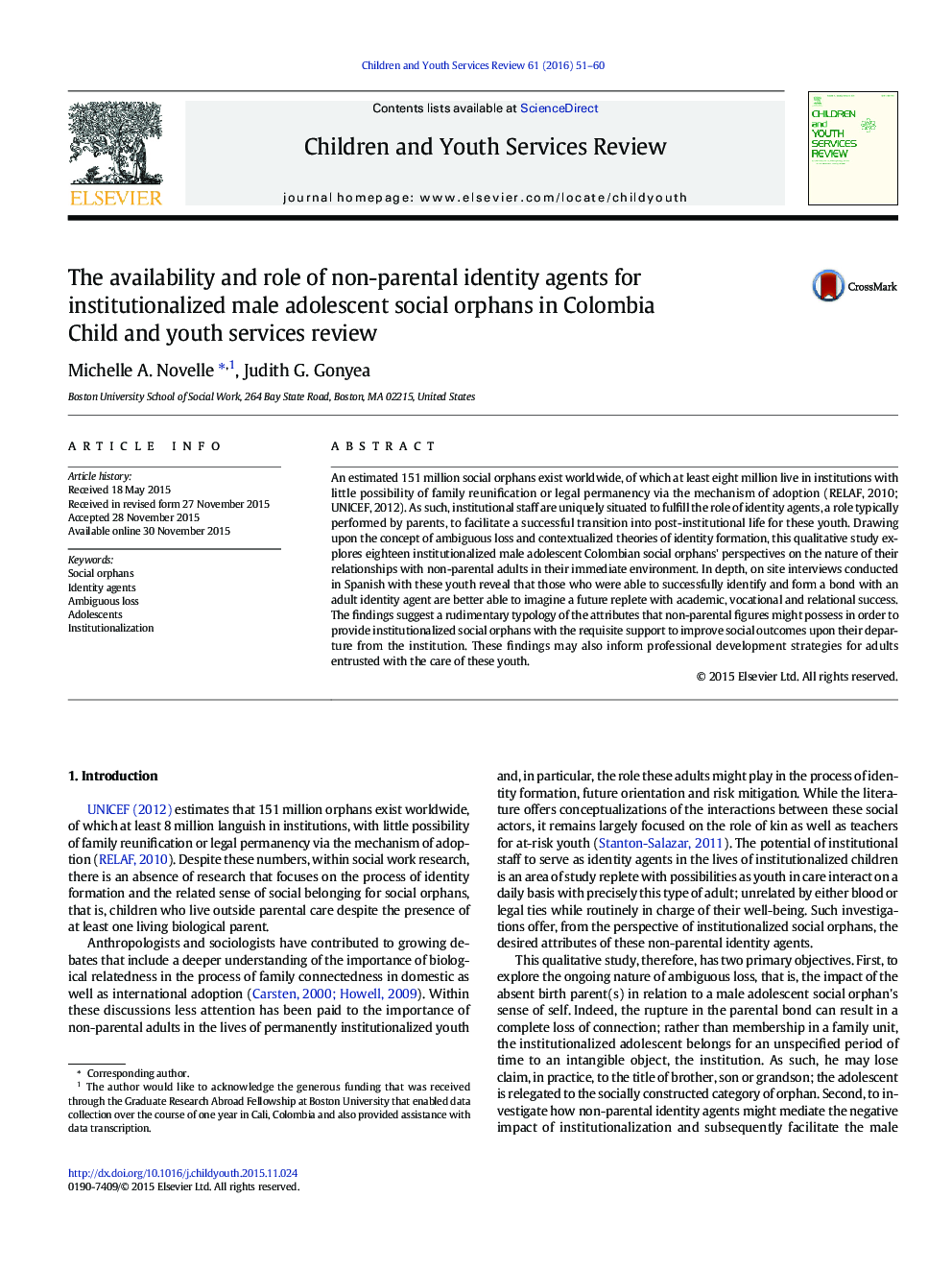| کد مقاله | کد نشریه | سال انتشار | مقاله انگلیسی | نسخه تمام متن |
|---|---|---|---|---|
| 345873 | 617772 | 2016 | 10 صفحه PDF | دانلود رایگان |
• Adolescent social orphans are able to identify in adults the types of support they deem most helpful.
• Institutionalized youth are able to form new attachments.
• Biological family members remain psychologically present for institutionalized youth despite length of separation
• More fluid boundaries between staff and youth may foster more accessible role models and promote greater resilience.
An estimated 151 million social orphans exist worldwide, of which at least eight million live in institutions with little possibility of family reunification or legal permanency via the mechanism of adoption (RELAF, 2010; UNICEF, 2012). As such, institutional staff are uniquely situated to fulfill the role of identity agents, a role typically performed by parents, to facilitate a successful transition into post-institutional life for these youth. Drawing upon the concept of ambiguous loss and contextualized theories of identity formation, this qualitative study explores eighteen institutionalized male adolescent Colombian social orphans' perspectives on the nature of their relationships with non-parental adults in their immediate environment. In depth, on site interviews conducted in Spanish with these youth reveal that those who were able to successfully identify and form a bond with an adult identity agent are better able to imagine a future replete with academic, vocational and relational success. The findings suggest a rudimentary typology of the attributes that non-parental figures might possess in order to provide institutionalized social orphans with the requisite support to improve social outcomes upon their departure from the institution. These findings may also inform professional development strategies for adults entrusted with the care of these youth.
Figure optionsDownload as PowerPoint slide
Journal: Children and Youth Services Review - Volume 61, February 2016, Pages 51–60
